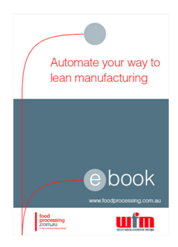Counterfeiting is a global issue and has been for years. But advances in technology have given counterfeiters the ability to make ever more convincing counterfeit goods, and fast. But it’s no longer only luxury products and electronics that are being counterfeited. Today we’re seeing a rise in counterfeit food and beverage products. And while it’s obviously a global issue, counterfeiters are increasingly preying on Australian goods, taking advantage of their reputation as superior, high-quality produce.
Just look at the “Barossa” wine that has never been within a sniff of Australian air, or the “Benfolds” wine bottles that had an eerie resemblance to those of Penfolds. Then there’s Australian farmer David Blackmore who found out his premium Blackmore Wagyu Beef was being sold in China as a cheaper cut. And the Tasmanian cherry growers whose produce was being sold in counterfeit “Tasmanian-grown” packaging in China and Vietnam
Aussie beef farmers, breweries, fresh produce growers, wine makers, honey producers and dairy processors need to be aware of the threat that counterfeit products pose to their brand integrity. These counterfeit goods are competing with Australian exporters for shelf space overseas, and in many cases are actually outselling the real deal – the fake “Tasmanian-grown” cherries were outselling the authentic produce five to one!
And it’s not just profits that can be hurt; counterfeit food and beverage products can do everlasting damage to a brand and put consumers in danger – especially because we can’t be sure what’s inside the packaging.
That’s where serialisation comes in.
